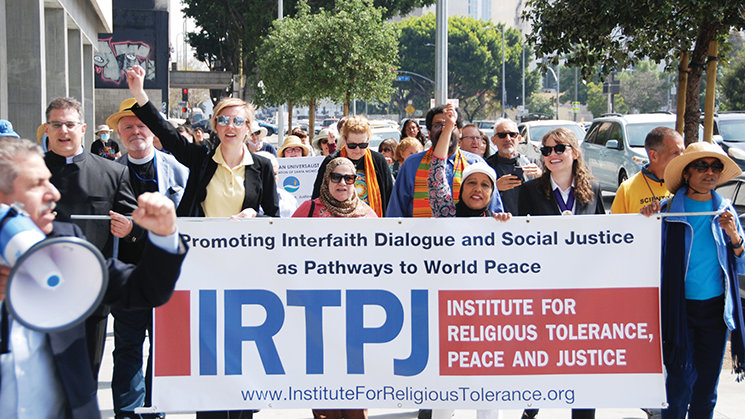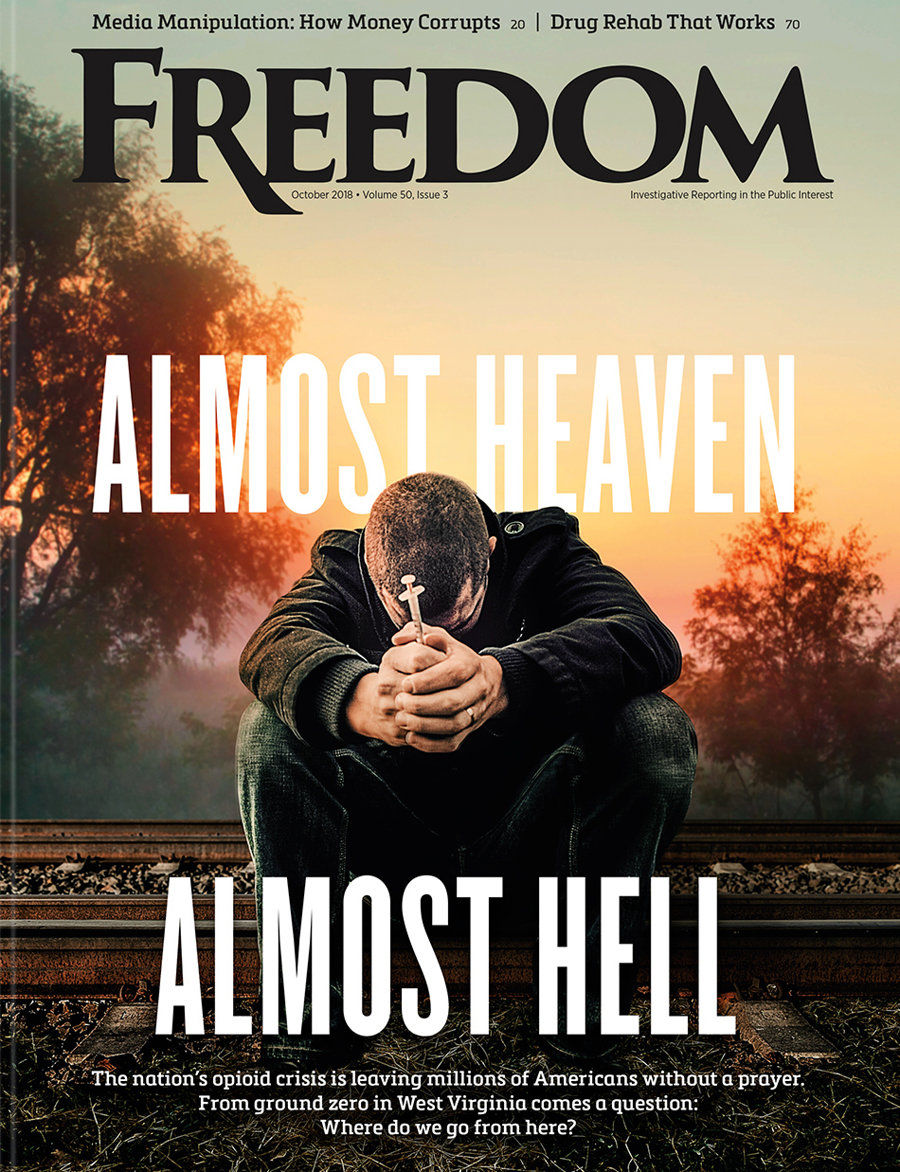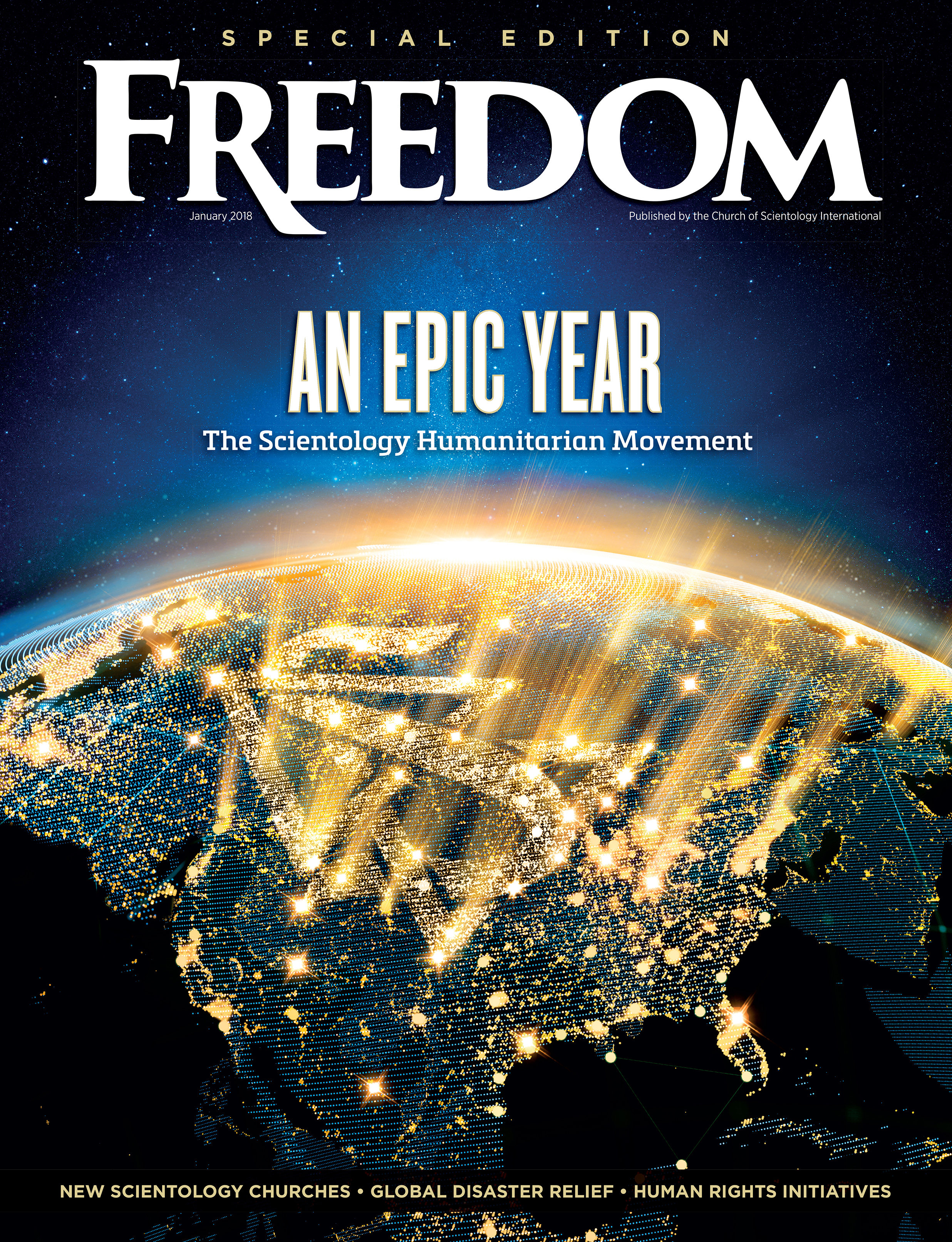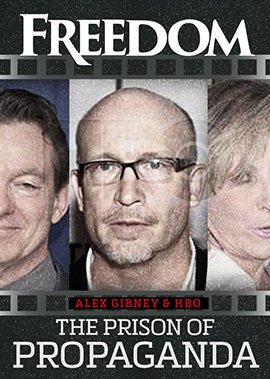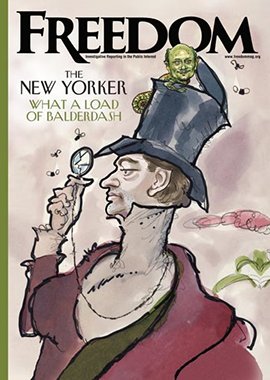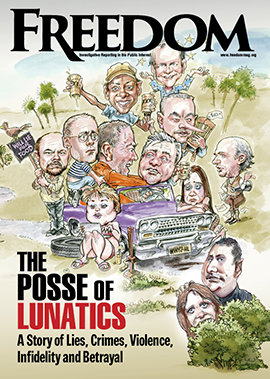“The purpose of listening across lines of difference is not agreement or compromise. It is understanding.” ―Valarie Kaur
It’s a phrase more suggestive of a parent dealing with a troublesome teenager than a crusade to bring about interfaith understanding and religious freedom in a violent and divided world.
But as Dr. Arik Greenberg, founder and president of IRTPJ, puts it, it is immature to lump a whole community into a simplistic “Other.” It is immature to remain religiously illiterate. And it is immature and egregious to use the Bible, the Quran, the Vedas or any sacred scripture—or religion itself—as a justification for hate.
That’s why, under Dr. Greenberg’s leadership, IRTPJ conducts panel discussions and lectures, a podcast (the ReligionMatters Show), an interfaith ambassadors program and an annual march held in the United States and abroad.
That annual Interfaith Solidarity March, now in its ninth year, is the centerpiece of IRTPJ’s program. The walk—actually more than two dozen walks for peace and harmony, all held simultaneously across the globe and involving thousands of people—is the largest coalition of interfaith marches in the world.
“During the Holocaust one of the biggest threats to Nazi dominance in Germany was the fact that many Germans knew one good Jew.”
“There are likely people in this crowd who don’t necessarily agree with you on every single thing,” Dr. Greenberg announced to the marchers gathered in Los Angeles this spring. “But we have agreed to march together in peace, and to learn a little something about each other. To put aside our differences so that we can demonstrate to the rest of the world that this can be done. People of different faiths and ideologies can come together.”

And, thanks to Dr. Greenberg, the different faiths do come together—Jews, Christians, Scientologists, Muslims, Latter-day Saints, Sikhs and more. And at the panel following the march, they also discuss, sometimes agreeing to disagree, more often agreeing, but always on a growing foundation of friendship and mutual respect.
At the panel, an older woman in a hijab seated at the end of the table comments on the thorny question: “How do we make interfaith understanding and peace happen?”
“My bet is on the youth,” she says.
“I like your bet,” answers a Jewish man in a kippah at the other end of the table. “So let’s put our bet on the table and figure out how we’re going to make sure that the youth have everything they need to succeed.”
The gathering applauds as the two beam at one another across the table.
With Arik Greenberg, this is what it’s all about. Learning and listening. And, above all, knowing that the solution always lies in our shared goodness and humanity.
“During the Holocaust,” Dr. Greenberg told Freedom, “one of the biggest threats to Nazi dominance in Germany was the fact that many Germans knew one good Jew. ‘You know, my neighbor, he’s a nice guy. Yes, I know all Jews are bad, they’re hateful, they’re trying to destroy Germany—but my neighbor…’
“So the fact that every German knew one good Jew was a big hindrance to the possibility of rounding up all Jews and eradicating them,” Dr. Greenberg says.
Whenever he runs into what he calls “mild bigotry” against a marginalized group, Dr. Greenberg has applied this principle. “Well, I have a friend who’s a [fill in the blank], and he’s a great guy,” he suggests saying. “That raises the doubt in the other person’s mind—because if there’s one good person in that group, maybe there’s more than one good person in that group. If we get [bigots] to doubt their reasons for bigotry, then we have a fighting chance.
“It’s not going out and protesting and marching, but it’s saying to someone who’s expressing mild religious bigotry, ‘Hey, I’ve got a different opinion.’ And that’s a good place to start.”

Arik Greenberg is well-suited to the part of the patient parent gently correcting the misinformed child. A teacher by temperament and profession, he is on the Theological Studies faculty of Loyola Marymount University as Clinical Assistant Professor of Interreligious Dialogue.
From that position, he strives to teach youth about the shared humanity of all religions.
As one example of how to listen, learn and achieve respect and friendship across religious divides, Dr. Greenberg explains: “I have an upper division class on interreligious dialogue and engagement where students are made to interface with major faith organizations, volunteer for them, get to know those organizations, and to then share a report on those organizations with the class.”
In this way, he says, “they’re getting a much more balanced perspective, rather than ‘We’re right! No, we’re right!’”
The process is not instant. The process is not dramatic. And because the process is peaceful, it rarely attracts media attention.
But the process is effective. Dr. Greenberg believes in tackling interfaith engagement and harmony one person at a time, one local faith community at a time.
“We have to take it on a case-by-case basis,” he says of his group’s strategy. “Sometimes there are regional—rather than faith—issues. And I try to establish friendships and collaborations between communities during times of peace when it’s easy, so that when the hard times come we have the ability to get through them.”
Arik Greenberg explains that he has no yardstick or metric to measure his success in the same way one would with an effective cancer drug. He can’t say, “This year we took 38,000 bigots and transformed them into tolerant, inclusive human beings.”
But he does see signs of success. “The interfaith movement is now more of a household word,” he says. “We’ve gone public and that’s a good thing. I’m getting invited to many panels—so many that I have to decline some of the invitations. So the needle is moving on recognizing the importance of religious freedom and religious literacy.”
As for those who are impatient with Dr. Greenberg’s approach, who think a multifaith humanitarian objective is nothing more than a pipedream—or even dismiss the principle that understanding can dissolve bigotry as nothing but a forlorn hope—Dr. Greenberg says simply: “I believe in redemption. We can’t stop now.”





